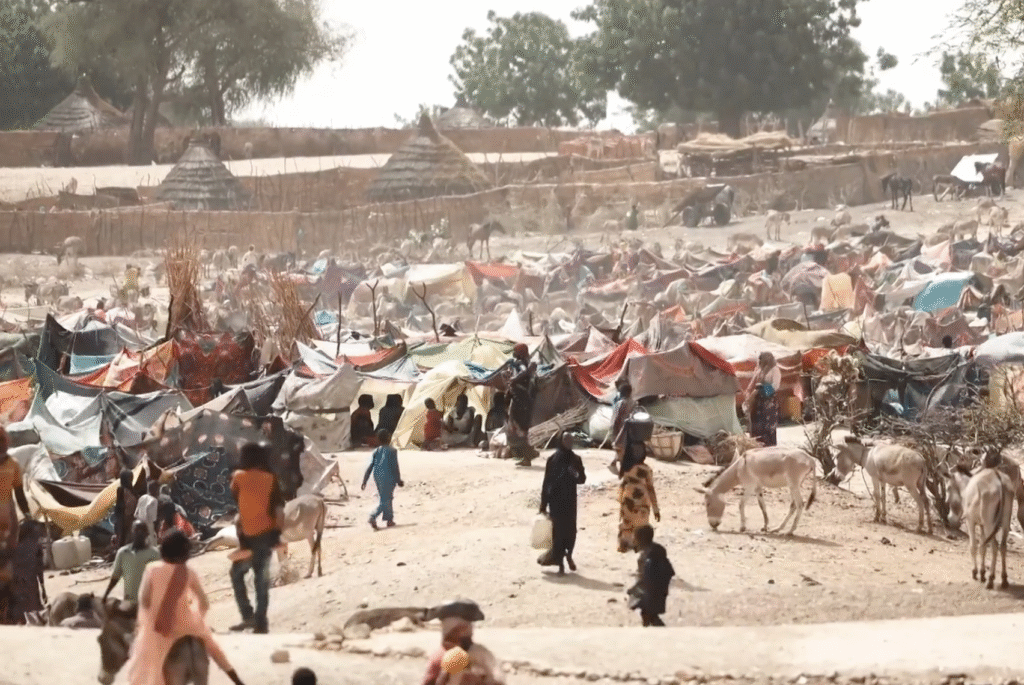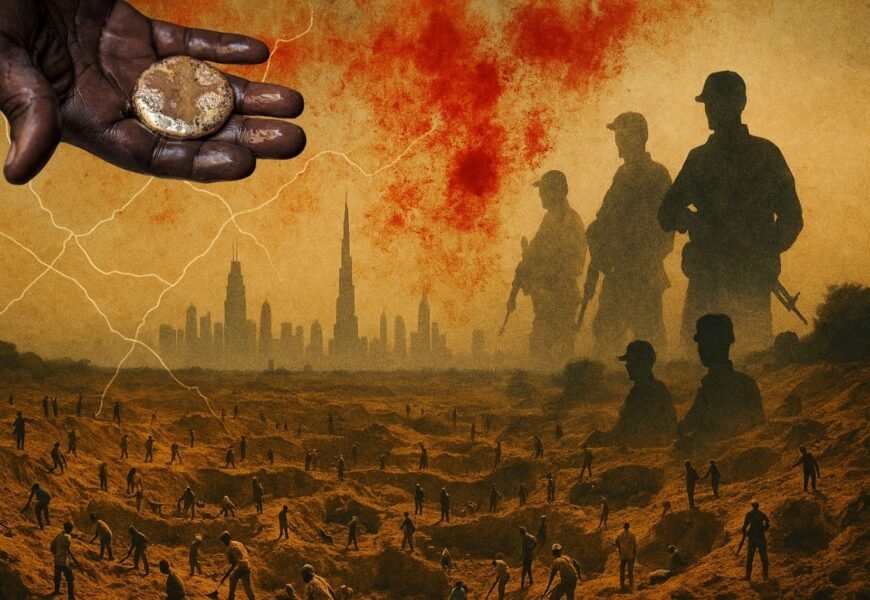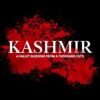In the shadow of global headlines, Sudan is burning. Not just metaphorically, but literally—villages razed, civilians massacred, families torn apart. And underneath the ash and rubble, glints of gold still shine. It’s a cruel irony. The very resource that could rebuild this nation is the same one tearing it to pieces.
Sudan is in the midst of one of the world’s most devastating and most ignored humanitarian crises. And yet, somehow, most people couldn’t tell you who’s fighting, or why. The story feels murky, distant, and inconvenient. That’s not by accident.
Because once you start pulling on the threads—following the gold, tracing the weapons, connecting names to offshore companies, the picture gets clearer. And uglier. What’s happening in Sudan is not just a civil war. It’s a resource war. A proxy war. A smuggling operation masked as a political struggle.
And we’re all closer to it than we think.
A State That Was Never Allowed to Heal
In 2019, the Sudanese people did something remarkable. After three decades of brutal dictatorship under Omar al-Bashir, they rose up—nonviolently, and at great risk—to demand something better. A transition began, cautiously hopeful.
But coups don’t die quietly. In 2021, the military struck back, led by General Abdel Fattah al-Burhan and his rival-turned-partner-turned-enemy, Mohamed Hamdan Dagalo, better known as “Hemedti.”
By April 2023, the fragile alliance collapsed into full-blown war. Today, the Sudanese Armed Forces (SAF), led by Burhan, and the paramilitary Rapid Support Forces (RSF), under Hemedti, are locked in a power struggle that has killed over 15,000 people and displaced more than 10 million.

But these aren’t just feuding generals. They are war profiteers with private armies, smuggling routes, and foreign patrons.
Gold: The Artery That Keeps the War Alive
Sudan is Africa’s third-largest gold producer. But you wouldn’t know it from the living conditions of its citizens, many of whom now rely on food aid, if they can access it at all.
In theory, Sudan should be rich. In practice, more than 80 percent of its gold is smuggled out of the country, bypassing state revenues and flowing directly into the pockets of militias and foreign dealers. The RSF, in particular, controls key mines through companies linked to Hemedti’s family, like Al-Junaid.
Gold travels by hand luggage across the Red Sea, often through porous checkpoints, and lands in Dubai. There, it’s refined, its origins effectively erased. Once smelted, gold is labeled simply “Dubai,” no questions asked. According to investigations, over 400 tons of Sudanese gold may have vanished from official records in just one recent year.
To put that in perspective, Sudan’s gold exports were reported at 22.5 tons in 2021. The UAE, that same year, imported over 80 tons from Sudan.
Where’s the oversight? Where’s the outrage?
Foreign Hands, Hidden Agendas
Let’s not pretend this is just a Sudanese problem. The RSF didn’t build its empire alone. It had help from powerful countries and shadowy mercenaries alike.
The United Arab Emirates, Sudan’s largest gold importer, has been accused of funneling weapons to the RSF via proxy routes through Libya, Chad, and Uganda. Though the UAE officially denies it, multiple reports, including from UN monitors, say otherwise.
Meanwhile, Russia’s Wagner Group played a different hand. Backing both al-Bashir and later Hemedti, Wagner secured mining concessions in exchange for security support. The gold-for-guns trade isn’t just a rumor—it’s well-documented. Planes loaded with gold have flown from Africa to Russia amid war, sanctions, and silence.
This isn’t diplomacy. It’s plunder. A 21st-century scramble for Africa—just more digitized, more deniable.
The Human Cost of Global Indifference
While generals cash in and foreign brokers look the other way, Sudanese civilians are paying the price. In Darfur, the RSF has been accused of ethnic cleansing and mass rape. In Khartoum, homes have been looted, and infrastructure destroyed.
Food prices have tripled. Hospitals have collapsed. Aid workers are being targeted, and journalists are being silenced.
And yet, somehow, Sudan barely breaks into mainstream news coverage. Compare this to the global reaction to Ukraine, or Gaza, or even Myanmar. There’s a brutal calculus at work—Sudan is geopolitically inconvenient. The optics aren’t clean. The alliances are messy.
Diplomatic peace talks have stalled repeatedly. Sanctions, when imposed, often target the wrong actors or come too late. And institutions like the International Court of Justice? Toothless, especially when countries like the UAE opt out of genocide conventions altogether.
So What Happens Now?
Realistically, the war shows no signs of stopping. Neither the SAF nor RSF has a clear path to victory. But they don’t need one—as long as the gold keeps flowing, the guns will too.
To stop the war, the international community must choke the supply lines. That means targeting the economic engines of conflict, not just issuing symbolic condemnations.
Dubai’s gold market must be regulated. Not with soft pledges, but with traceability laws and real enforcement. Foreign companies profiting from Sudanese gold must be named. Frozen assets and export bans need to be applied—upstream and downstream.
And maybe, just maybe, the world should start listening to Sudanese voices. Civil society groups, many operating in exile or in hiding, are already mapping out paths to a civilian-led future. But they can’t do it while dodging airstrikes and famine.
The Gold Standard of Hypocrisy
Let’s be honest. Gold is not just a commodity, it’s a symbol. Of wealth, of security, of permanence. We wear it at weddings, store it in vaults, and trade it on markets.
But in Sudan, gold is a weapon. A silent one. It funds militias, bankrolls warlords, and feeds the kind of corruption that international diplomacy tiptoes around.
This isn’t about charity. It’s about accountability. If we care about peace, if we care about justice, we have to follow the money. And in Sudan, that money glitters.
But it’s stained with blood.
Sources and Further Reading
- UN Panel of Experts on Sudan Reports (2023)
- Global Witness: “War in the Treasury of the People” (2021)
- Al Jazeera Investigative Unit: “Sudan’s Gold” Documentary (2024)
- Reuters: “Exclusive: Dubai’s Dark Gold” (2022)
- Human Rights Watch: Reports on Darfur and Khartoum (2023–2024)
- Bloomberg & Financial Times gold trade analyses














